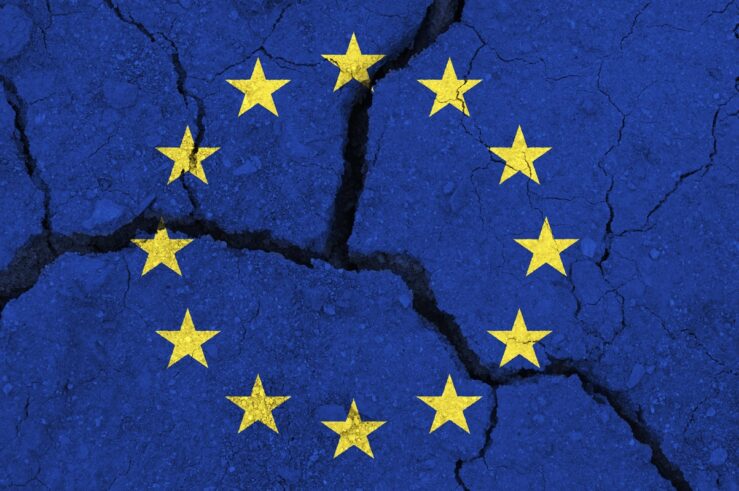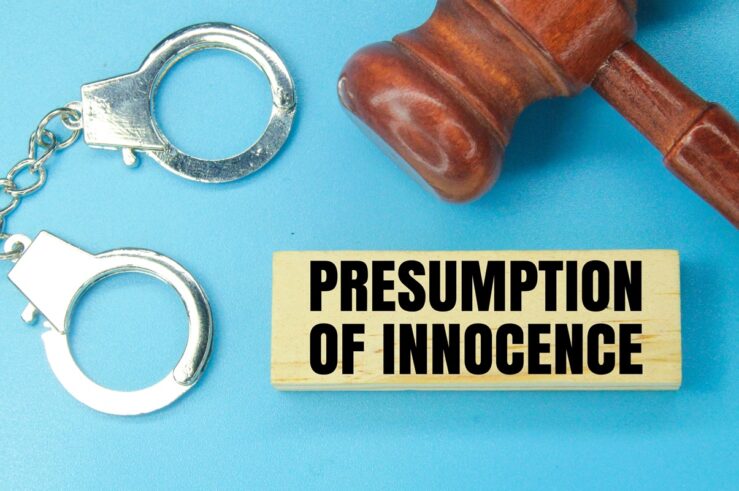Showing archive for: “EU”
The Broken Promises of Europe’s Digital Regulation
If you live in Europe, you may have noticed issues with some familiar online services. From consent forms to reduced functionality and new fees, there is a sense that platforms like Amazon, Google, Meta, and Apple are changing the way they do business. Many of these changes are the result of a new European regulation ... The Broken Promises of Europe’s Digital Regulation
A Closer Look at Spotify’s Claims About Apple’s App-Store Practices
Following Monday’s announcement by the European Commission that it was handing down a €1.8 billion fine against Apple, Spotify—the Swedish music-streaming service that a decade ago lodged the initial private complaint that spawned the Commission’s investigation—published a short explainer on its website titled “Fast Five Facts: Facts that Show Apple Doesn’t Play Fair.” The gist ... A Closer Look at Spotify’s Claims About Apple’s App-Store Practices
The DMA’s Missing Presumption of Innocence
The EU’s Digital Markets Act (DMA) will come into effect March 7, forcing a handful of digital platforms to change their market conduct in some unprecedented ways. The law effectively judges them guilty (with a very limited, formalistic trial), and brands them “gatekeepers” based purely on size. It then sentences them to far-reaching, one-size-fits-all antitrust-style ... The DMA’s Missing Presumption of Innocence
Apple Fined at the 11th Hour Before the DMA Enters into Force
Just days before the EU’s Digital Markets Act (DMA) was set to enter into force, the European Commission hit Apple—one of the six designated “gatekeepers” to which the new law will apply—with a hefty €1.8 billion fine for the kinds of anti-steering provisions that will be banned by the DMA, which enters into force on ... Apple Fined at the 11th Hour Before the DMA Enters into Force
From Europe, with Love: Lessons in Regulatory Humility Following the DMA Implementation
The European Union’s implementation of the Digital Markets Act (DMA), whose stated goal is to bring more “fairness” and “contestability” to digital markets, could offer some important regulatory lessons to those countries around the world that have been rushing to emulate the Old Continent. The first regards “regulatory humility.” Designing ex ante regulation to promote ... From Europe, with Love: Lessons in Regulatory Humility Following the DMA Implementation
Whose Failure Is the Failed Amazon/iRobot Merger?
The European Commission told Amazon in November 2023 of its preliminary view that the company’s proposed acquisition of iRobot restricted competition in the market for robot vacuum cleaners (RVCs) and could hamper rival RVC suppliers’ ability to compete effectively. The deal, the Commission asserted, would give Amazon incentive to foreclose iRobot’s competitors by engaging in ... Whose Failure Is the Failed Amazon/iRobot Merger?
DMA: Setting the Goalposts
In a little less than a month, the European Union’s Digital Markets Act (DMA) will start to bite, but how will it taste? By March 7, companies that were designated as “gatekeepers” in September 2023 will be required to meet the obligations of Articles 5, 6, and 7 of the DMA Regulation. With the exception ... DMA: Setting the Goalposts
Navigating the AI Frontier, Part I
The European Union is on the verge of enacting the landmark Artificial Intelligence Act (AI Act), which will—for better or worse—usher in a suite of new obligations, and hidden pitfalls, for individuals and firms trying to navigate the development, distribution, and deployment of software. Over the coming months, we will be delving into the nuances ... Navigating the AI Frontier, Part I
A European Commission Challenge to iRobot’s Acquisition Is Unjustified and Would Harm Dynamic Competition
Once again, a major competition agency, the European Commission, appears poised to take an anticompetitive enforcement action—in this case, blocking Amazon’s acquisition of consumer robotic-manufacturer iRobot. iRobot, headquartered in Bedford, Massachusetts, is an American success story: Founded in 1990 by Massachusetts Institute of Technology roboticists with the vision of making practical robots a reality, iRobot ... A European Commission Challenge to iRobot’s Acquisition Is Unjustified and Would Harm Dynamic Competition
Google, Amazon, Switching Costs, and Red Herrings
Way back in May, I cracked wise about the Federal Trade Commission’s (FTC) fictional “Bureau of Let’s Sue Meta,” noting that the commission’s proposal (really, an “order to show cause”) to modify its 2020 settlement of a consumer-protection matter with what had then been Facebook—in other words, a settlement modifying a 2012 settlement—was the FTC’s ... Google, Amazon, Switching Costs, and Red Herrings
EU’s Cybersecurity Draft Shifts Toward Hard Protectionism
A year ago, we cautioned that the EU Cybersecurity Certification Scheme for Cloud Services (EUCS) threatened to embed ill-conceived economic protectionism into the EU’s cybersecurity rules. And, indeed, the European Commission, which has made clear its commitment to pursue “digital sovereignty” for the European Union, can claim some preliminary successes on that front. A recent ... EU’s Cybersecurity Draft Shifts Toward Hard Protectionism
Gatekeeping, the DMA, and the Future of Competition Regulation
The European Commission late last month published the full list of its “gatekeeper” designations under the Digital Markets Act (DMA). Alphabet, Amazon, Apple, ByteDance, Meta, and Microsoft—the six designated gatekeepers—now have six months to comply with the DMA’s list of obligations and restrictions with respect to their core platform services (CPS), or they stand to ... Gatekeeping, the DMA, and the Future of Competition Regulation
















